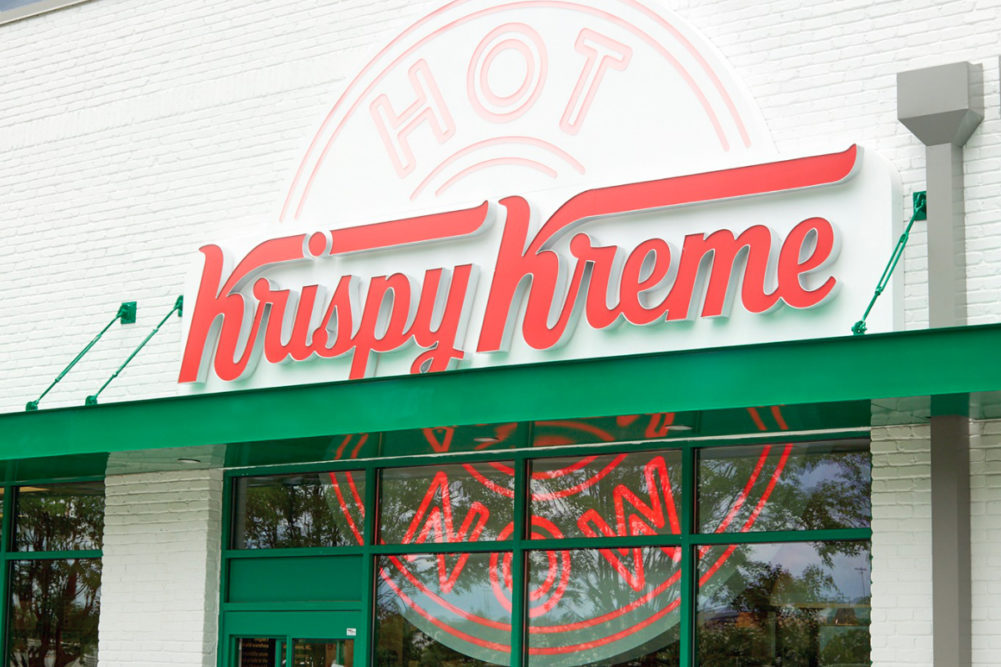WINSTON-SALEM, NC. — The initial public offering for Krispy Kreme Doughnuts, Inc. experienced mixed results.
On June 30, the day before the IPO made its debut on the Nasdaq under the symbol DNUT, Krispy Kreme announced it would offer 29,411,765 shares of its common stock at $17 per share, which was below the expected price range of $21 to $24 per share in a June 22 filing with the US Securities and Exchange Commission. Then the share price opened at $16.30 on July 1 but rallied to close at $21 on its first day of trading. The share price was at $19.26 at midday on July 2.
New Constructs, LLC, which provides insights into private and public businesses, in a June 28 research report questioned Krispy Kreme’s June 22 estimate. In the report titled “Dough-Not Buy This Overpriced IPO,” New Constructs said Krispy Kreme’s expected valuation of $3.6 billion was overpriced. New Constructs said it believed the stock was worth no more than $1.6 billion.
“With this IPO, we believe JAB Holdings is looking to cash out at the expense of new investors,” the report said. “A $3.6 billion valuation implies Krispy Kreme will reverse its profit nosedive, grow profits by nearly 700% and make more money than quick-service restaurant (QSR) industry incumbents like The Wendy’s Co. (WEN). Such a scenario looks unlikely given the shift in consumer preferences toward healthier foods and the failure of its past growth strategy to achieve the economies of scale needed to operate profitably.”
JAB Holding Co. acquired Krispy Kreme in 2016 for $21 per share in cash, or a total equity value of about $1.35 billion. According to the June 22 SEC filing, about 16.6% of Krispy Kreme’s total common shares were to be available through the IPO. JAB Holding was to hold 38.6% of the shares and distribute the remaining shares to minority investors.
The July 1 IPO marked the second time Krispy Kreme, founded in 1937 in Winston-Salem, NC, went public, the first time happening in 2000. The JAB Holding acquisition made the company private again.
In the June 22 SEC filing, Krispy Kreme laid out plans on how it expected to grow financially, pointing to its delivered fresh daily (DFD) model initiated over the past two years and how it planned to continue adding DFD locations. The DFD model is part of an omni-channel business model and a hub-and-spoke network in which the company’s Hot Light Shops produce donuts for fresh retail, DFD, e-commerce and delivery. Krispy Kreme also acquired a controlling interest in Insomnia, a cookie chain, in 2018.
“It’ll be interesting to see how Krispy Kreme fares in the days and weeks to come,” wrote Dan Caplinger in a The Motley Fool article published July 1. “The donut maker saw its stock soar in the years following its 2000 offering, only to give up much of those gains as hype surrounding its donuts started to fade. Investors looking for a sweet deal will have to look forward to hearing Krispy Kreme’s first quarterly report on how its business is performing.”





